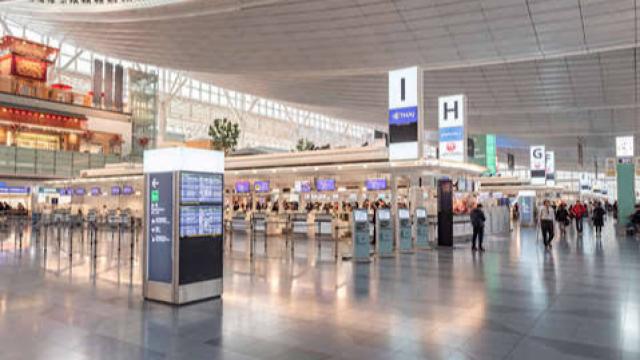The Transportation Security Administration TSA in America made a revelation about air travel and airlines that might be difficult to believe. It says the number of persons who underwent screening at the airports on Tuesday, April 7 was less than 100,000. This, TSA says, is a decline of 95 percent from a year ago. It shows that fewer Americans are opting for air travel. They are in the safety of their homes to avoid falling into the clutches of the disease that has its roots in China.
United is cutting nearly 90% of its New York-area flying, a sign of how air travel could grind to a near-halt in a region that has become the epicenter of the pandemic in the U.S. https://t.co/Tekf6oEhnC
— The Wall Street Journal (@WSJ) April 5, 2020
KTLA says back in 1954, the average number of air travelers in America was 97,000 daily.
A trade group 'Airlines for America' furnished this data. The 1950s saw the dawn of aviation and travelers loved the new mode of transport that made journeys shorter. There was a similar drop in numbers soon after the terror attacks on Sept. 11, 2001, but gradually it picked up. By contrast, on April 7, the figure was 97,130 – a revelation that the industry is in a crisis because of COVID-19. The decline attributable to the fear complex would take time to recover. A poll gives an insight into the minds of the people. It says the people would not board a plane within six months of the disease being contained.
Airlines faced a dilemma
The TSA came into being post 9/11 and it maintains a record of the air traffic.
Its figure shows 2.3 million on a normal day (March 1 this year) which is comparable to the figure of the previous year. The downward trend began in the second week of March and it kept dropping. As a travel industry analyst says - “The falloff is amazing to see. The good news is that it shows people are taking shelter-in-place orders seriously.”
It is not that flights have stopped. Most travelers today are those associated with health care. They are professionals and have to attend to pandemic hot spots for the treatment of COVID-19 patients.
Air traffic in the UK is down by almost 90% compared with this time last year, as air travel continues to fall globally amid the #coronavirus pandemichttps://t.co/asPbcVVS2e pic.twitter.com/jofbtWjLcF
— ITV News (@itvnews) April 3, 2020
KTLA goes on to add that airlines have implemented a reduction in the number of flights and are trying to balance the equation.
The fact is that in spite of cutting down on the numbers, most seats are empty. The daily losses for United Airlines are around $100 million and for Delta Air Lines it is around $60 million. It will be tough going for the airlines because of many unpredictable factors like social distancing, the state of the economy, unemployment etcetera
The downslide in global passenger traffic worries airlines
According to IATA, the global passenger traffic data for February 2020 was less than the corresponding figures of February 2019. The drop was approximately 14.1 percent. The International Air Transport Association added that this was the steepest decline in traffic since 9/11. It was a result of the collapse in domestic travel because of coronavirus and associated travel restrictions.
Alexandre de Juniac, IATA’s Director General and CEO, summed it up as he said - “Airlines were hit by a sledgehammer called COVID-19 in February.” It meant the closure of borders to check the spread of the virus and large-scale cancellation of flights. These were necessary because it was a contagious disease and there is no known cure.
Trying times for airlines
The origin of coronavirus was in the city of Wuhan in China. It spread to different corners of the world and brought life to a standstill. The authorities advised people to maintain social distancing, and work from home. Schools closed as did movie halls. There was the postponement of the release of films as well as the Tokyo Olympics 2020.
Stadiums became no-entry zones, like amusement parks. Coronavirus forced airlines to ground their fights. It also helped to clean the environment since the roads were empty with very few vehicles on the roads. In order to balance its economy, American Airlines reduced its international flights, but not its domestic service.
![Airports empty, Airlines losing millions as COVID-19 quarantines widen. [Image source/CBN News YouTube video] Airports empty, Airlines losing millions as COVID-19 quarantines widen. [Image source/CBN News YouTube video]](https://staticr1.blastingcdn.com/media/photogallery/2020/4/9/660x290/b_502x220x82/airports-empty-airlines-losing-millions-as-covid-19-quarantines-widen-image-sourcecbn-news-youtube-video_2437433.jpg)



